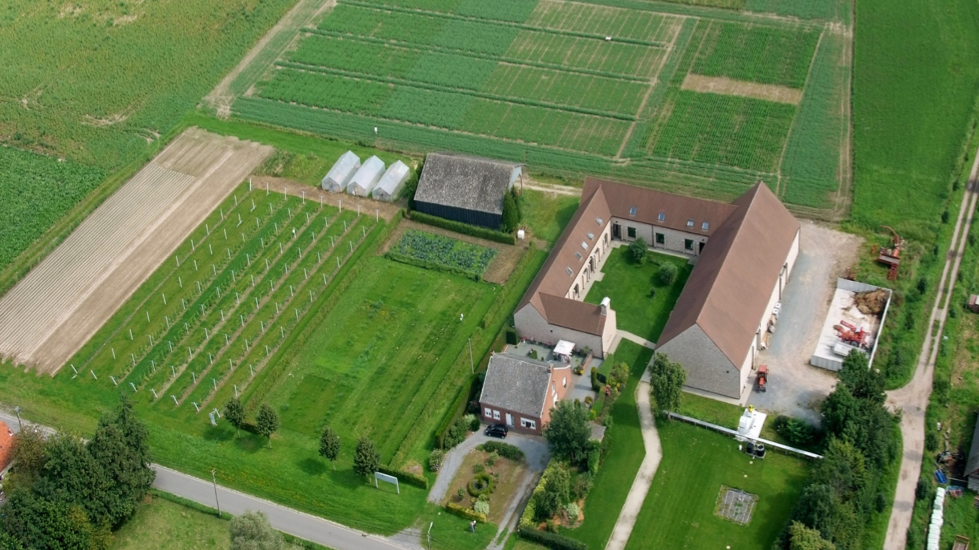UGent Demonstration Farm

The history of the experimental farm in Bottelare goes back to 1983. Those days, the main focus was on optimizing the cultivation of maize and barley. While research on these crops is still being conducted, nowadays, the experimental farm has grown into a well-equipped facility carrying out multidisciplinary and innovative fundamental and applied agricultural research. Various field experiments with a wide range of arable crops, including small grain cereals, maize, legumes and canola are set up. In addition, greenhouse and laboratory experiments are conducted to gain a profound insight into e.g. the plant-pathogen-environment interactions.
The main research areas covered by the experimental farm are breeding (e.g. triticale and barley), crop production and crop protection, all serving a common main goal: coming to a more sustainable and future-oriented agriculture. Besides one-year trials, unique long-term experimental trials on crop rotation and soil management are running since 2002, in support of this latter topic.
This multi-faceted facility forms an important training-ground for students and can be harnessed to practical applied internships with farmers, policy makers and companies. The experimental farm supports both (fundamental) academic research, collaborates with other research stations and also focuses on (bilateral) research with companies in relation to product development and optimization, trouble shooting, etc.
More than 50 ha of arable land is cultivated to serve the scientific and practical research goals; this area is subdivided into more than 25.000 experimental plots. Besides the basic experimental equipment (plot harvesters, calibrated backpack sprayers and compact tractor sprayers), the farm continuously invests in up-to-date precision farming equipment (GPS systems, sensor technology). In addition, the experimental farm has a phytopathological laboratory for high-throughput in vitro screenings of e.g. chemicals, plant pathogens, plant growth promoting organisms, phytotrons to grow plants in a controlled environment, minirhizotrons to observe root development under field conditions, etc.
The experimental farm collaborates with supporting molecular, technological and chemical labs of Ghent University, and is a key facility of CropFit (i.e. the multidisciplinary consortium of Ghent University and University College Ghent with expertise on biostimulants and biocontrol).
Programme
|
14:00 |
Welcome and introduction to experimental farm Bottelare |
|
14:15 |
Field tour including crop protection experiments (weed control and fungicide trials), plant breeding activities and crop husbandry |
|
17:00 |
Start of barbecue |
|
19:30 |
Return to Ghent centre |

